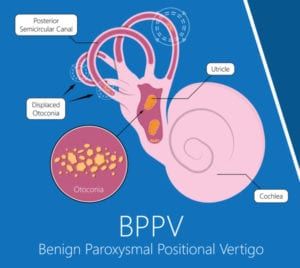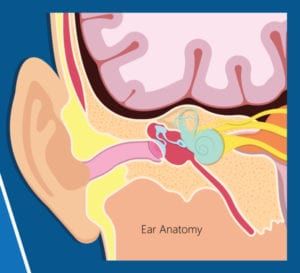Balance disorders are conditions that make you feel unsteady or dizzy. People with balance disorders may feel like they are moving, spinning, or floating when they are sitting, standing, or lying down. Additionally, they may also feel like they are tipping over when they are walking. As of 2008, an estimated 15% of American adults were affected by a balance disorder or dizziness.
Balance disorders occur when the vestibular system in your inner ear is not working properly. There are a number of functions that occur within the vestibular system that help you to maintain stability and balance while sitting, standing, walking, or running. When one or more of these functions are interrupted or malfunctioning, the end result are symptoms such as dizziness, vertigo, weakness, slowness, tremor, or rigidity.
BPPV is an inner ear disorder that is the most common cause of vertigo triggered by turning your head quickly, bending over, tipping your head back, or rolling over in bed. With BPPV dizziness is not constant, rather there are short episodes of extreme dizziness lasting about 30 seconds or less. BPPV can develop as a result of aging or due to a head injury…
Also known as idiopathic endolymphatic hydrops, this is a disorder of the inner ear caused by increased pressure within the endolymphatic system that causes hearing and balance problems. Increases in endolymphatic pressure can be caused by metabolic disturbances, hormonal imbalance, trauma, and ear infections. Most cases tend to develop around early to middle adulthood and are seen more often in women…





